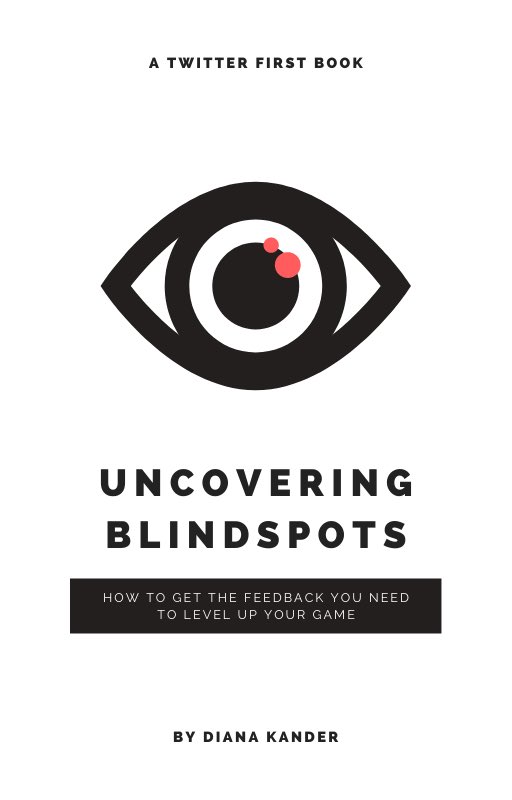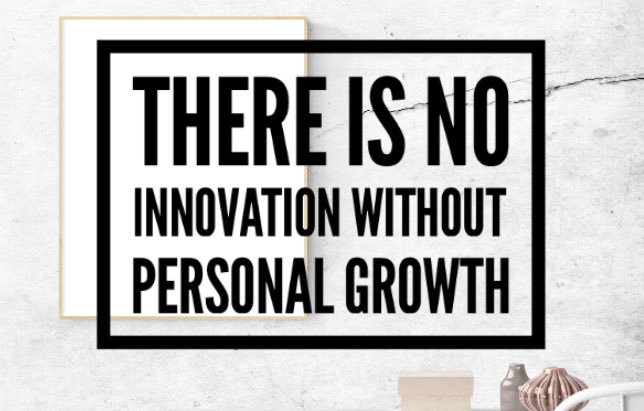1) New project for 2020. I& #39;m writing a book through daily posts on twitter - Uncovering Blindspots - How to get the feedback you need to level up your game - follow this thread for the updates. #FindYourBlindspots
2) There have been many books written on delivering feedback to others, but asking the right questions and uncovering your own blindspots is much more important to both your personal growth and the performance of your team. #FindYourBlindspots
3) Most people assume that no news is good news. But research shows that is not the case. 96% of unhappy customers won’t ever complain to you, but they will tell 9-15 people. The same is true of your employees and vendors. They are all holding back...
3a) If it has been more than 6 months since you heard feedback that you found surprising and maybe even a bit painful, I& #39;d be willing to bet you have blindspots that are slowing you down. https://www.providesupport.com/blog/5-reasons-unhappy-customers-dont-complain/">https://www.providesupport.com/blog/5-re...
4) If you want to Uncover Blindspots, you first need to convince Yourself that You are interested in the truth. Getting the truth will likely hurt and feel uncomfortable. You just have to believe that the short term pain you will feel will be worth the long term growth.
5) You might think you have an open-door policy. But how long has it been since a customer, employee or vendor walked through that door to tell you how things could be improved? The only way to judge how open you are to feedback, is to measure how often you are receiving it.
6) Your employees will not feel motivated to listen to the feedback you give them or implement it, if they don& #39;t see you modeling the behavior first.
They will instead tense up and become defensive. https://neuroleadership.com/your-brain-at-work/how-microsoft-transformed-approach-to-feedback/">https://neuroleadership.com/your-brai...
They will instead tense up and become defensive. https://neuroleadership.com/your-brain-at-work/how-microsoft-transformed-approach-to-feedback/">https://neuroleadership.com/your-brai...
6a) "When employees receive vague, unsolicited feedback — it triggers the brain’s fight-or-flight response. In this agitated state, working memory is impaired, abstract thinking is compromised, and comprehension plummets."
6b) "Rather than reflecting on what they can do better, employees become defensive, ignoring suggestions and resisting long-range goals.
A new experimental study by NLI Senior Scientist Tessa West and her colleague Kate Thorson of New York University found that ..."
A new experimental study by NLI Senior Scientist Tessa West and her colleague Kate Thorson of New York University found that ..."
6c) "once one person has broken the ice by asking for feedback, receiving feedback that’s been asked for is significantly less stressful — inducing a heart rate spike 50 percent lower than when feedback comes unsolicited."
7) It& #39;s important to understand that when you& #39;re trying to uncover blindspots, people& #39;s natural inclination is to lie to you because 1)They want to spare your feeling and 2) They want to get out of the conversation so you have to work extra hard to get them to tell you the truth.
8) To Uncover Blindspots, you must explain to the person you& #39;re asking why it& #39;s so important that they tell you the truth. They won& #39;t believe you at first. So convince them that finding feedback that& #39;s surprising is your success metric rather than protecting your ego.
9) I was having trouble getting feedback from a consulting client. I wasn’t 100% sure where they saw the most value out of my work. So finally, I asked the client to complete the following sentence: the only reason you’re here is _____. This lead to an incredible conversation.
9a) When you just ask for feedback, people don’t know what to say. It’s too broad. You have to focus their thinking to the specific question you’re trying to answer. Sometimes getting creating a crazy specific, will lead to a very rich discussion.
10) A tiny habit to improve my listening skills in 2020: When I am talking to someone and feel a response coming on to something they& #39;re saying -- like I& #39;m just waiting for my turn to speak -- I instead, challenge myself to ask a question. Any question.
HT @bjfogg
HT @bjfogg
11) Only Talk to the Right People. I only ask for speaking tips from professional speakers and I only ask questions about a potential new product from my target customer. Everyone else will have an opinion but they will often be wrong and send you on a wild goose chase.
12) It& #39;s much harder for women to receive specific feedback on their performance because of an unconscious bias.
Men need to be conscious of this bias when giving feedback to women, and women need to learn how to ask more directed questions. https://hbr.org/2016/04/research-vague-feedback-is-holding-women-back">https://hbr.org/2016/04/r...
Men need to be conscious of this bias when giving feedback to women, and women need to learn how to ask more directed questions. https://hbr.org/2016/04/research-vague-feedback-is-holding-women-back">https://hbr.org/2016/04/r...
12a) Also, check out this article on the topic. https://www.wsj.com/articles/the-reasons-women-dont-get-the-feedback-they-need-11570872601">https://www.wsj.com/articles/...

 Read on Twitter
Read on Twitter





